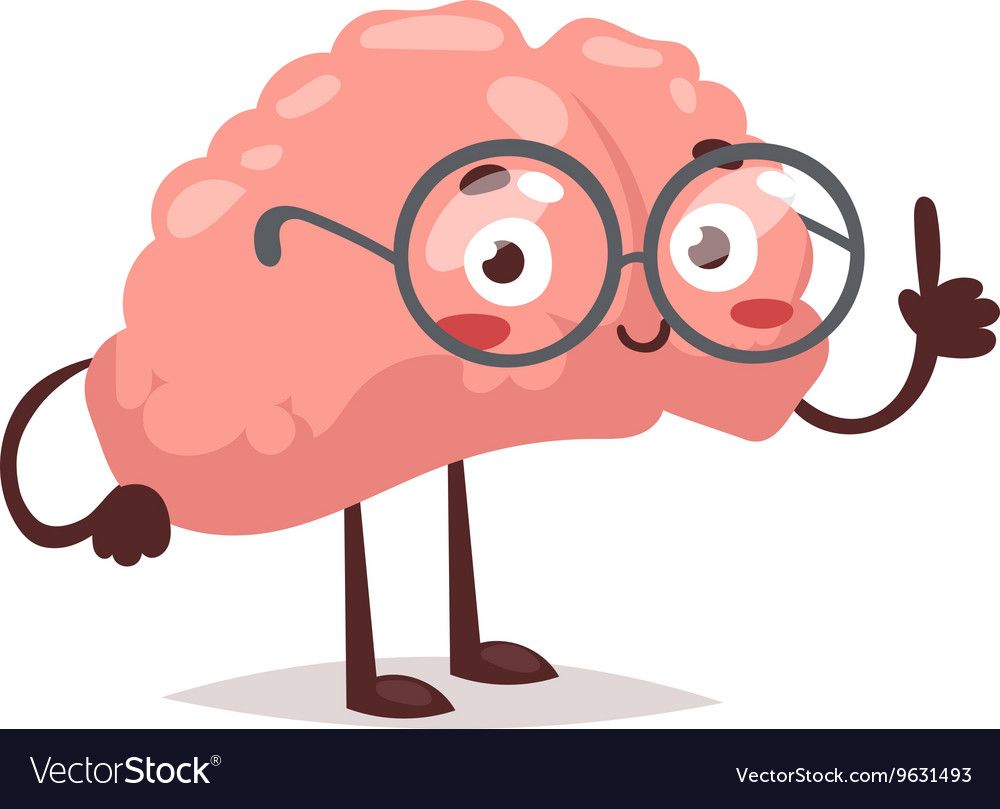
In today’s fast-paced world, it’s increasingly common to feel overwhelmed by the demands of daily life. The American Psychological Association’s latest “Stress in America” survey reveals that our stress levels are at “alarming levels” due to pervasive issues such as the ongoing pandemic, international conflicts, and rising inflation. These broad societal pressures layer on top of the personal stresses we navigate every day, from workplace strains and family responsibilities to frustrating commutes and difficult interactions.
While stress is a natural human response, chronic, unmanaged stress can pave the way for a host of significant health challenges, including depression, anxiety, persistent exhaustion, various physical illnesses, and debilitating burnout. The crucial first step in effectively managing these elevated stress levels isn’t complicated; it begins with simply recognizing when and how stress is impacting us. Many of us, however, are surprisingly adept at overlooking the subtle yet profound ways chronic stress manifests.
Our bodies possess a remarkable ability to adapt and push through challenging times, often making us believe we’re coping just fine even when stress is mounting. This “adaptation” phase involves the continuous release of stress hormones, like cortisol, which are designed to help us maintain function under pressure. However, this prolonged activation eventually takes its toll, leading to a gradual wearing down of our systems. By becoming more attuned to the early warning signs, we empower ourselves to intervene sooner, ease our stress before it reaches critical levels, and ultimately prevent a major crash. Psychologists highlight several key indicators that signal when stress has moved beyond a manageable state and is beginning to affect your well-being across your mind, body, behavior, and emotions. Let’s explore some of these vital signs.

1. **Muscle Tension**One of the most immediate and palpable physical responses to stress is muscle tension. When we encounter a perceived threat, our body’s built-in “fight-or-flight” response kicks in, preparing our muscles for action. This is an ancient survival mechanism, but in modern life, where threats are rarely physical, this constant readiness can lead to chronic tension without a release.
Over time, this sustained contraction can result in muscles that are perpetually tight and rigid. This isn’t just a physical discomfort; the context notes that “over time, they can become chronically tense, which feeds back into our minds and reinforces a sense of threat and unease.” This creates a vicious cycle where physical tension heightens mental stress, and mental stress, in turn, exacerbates physical tension.
Recognizing this chronic muscle tension, perhaps in your neck, shoulders, or jaw, is an important clue that your body is holding onto stress. It’s not just a sign; it’s a symptom that can contribute to a generalized feeling of being on edge, making relaxation difficult even when the immediate stressor has passed.
Read more about: Beyond Genetics: Unlocking the 15 Surprising Habits of People Who Thrive Past 100

2. **Poor Sleep**Sleep is often described as the first casualty when stress levels escalate, and for good reason. From an evolutionary perspective, our brains are hardwired to prioritize vigilance over vulnerability when danger is present. Consequently, “our brains know it’s not good to be unconscious and vulnerable when we’re in danger, so sleep is often the first casualty of elevated stress.”
This primal response means that when we’re under significant stress, our minds struggle to switch off, making it difficult to fall asleep or stay asleep. We might find ourselves tossing and turning, our thoughts racing with worries about past events or future challenges. The result is a pervasive feeling of being “wired but so tired,” a frustrating state where the body craves rest but the mind refuses to quiet down.
Beyond simply being an effect of stress, poor sleep quickly becomes an additional, potent source of stress itself. The exhaustion and diminished cognitive function that accompany sleep deprivation can make daily tasks feel insurmountable, further intensifying the feeling of being overwhelmed and creating a negative feedback loop that is hard to break without intervention.
Read more about: Critical Depression Symptoms You Should Never Ignore: A Deep Dive into the Sleep-Depression Connection for Your Well-being

3. **Headaches**Persistent headaches are another common physical manifestation of stress, often taking the form of tension headaches or even triggering migraines. The intricate connection between our mind and body means that heightened stress can directly affect the blood vessels and muscles in the head and neck, leading to discomfort and pain. “Stress can trigger tension headaches as well as migraines.”
The mechanisms behind stress-induced headaches are complex, but they frequently involve muscle tension, as previously discussed, and changes in brain chemistry related to stress hormones. This physical symptom isn’t isolated; it’s often compounded by other stress-related issues, such as poor sleep. “Lack of sleep doesn’t help,” the context directly states, indicating how intertwined these symptoms can be.
A recurring headache can disrupt concentration, diminish productivity, and generally reduce one’s quality of life, adding another layer of frustration to an already stressful experience. Paying attention to the frequency and intensity of your headaches can provide valuable insight into your underlying stress levels, prompting you to consider stress management strategies.
Read more about: Audi A4: Hidden Gems or Money Pits? A Deep Dive into Model Year Reliability for Savvy Buyers

4. **Digestive Problems**The intricate link between our brain and gut means that stress profoundly impacts our digestive system. The parasympathetic nervous system, often referred to as the “rest and digest” response, is responsible for facilitating healthy digestion. However, when the body is in a constant state of “fight/flight/freeze” due to chronic stress, the sympathetic nervous system dominates, suppressing digestive functions.
This imbalance can lead to a variety of uncomfortable and disruptive digestive problems. The context specifically highlights “common effects of stress include diarrhea and constipation.” These issues are not merely inconveniences; they can significantly affect daily comfort, nutrient absorption, and overall gut health, which in turn can influence mood and energy levels.
Beyond these common symptoms, chronic stress can also exacerbate existing gastrointestinal conditions or contribute to the development of new ones. A persistent upset stomach, changes in bowel habits, or recurring digestive distress should be seen as potential red flags, indicating that your body is reacting to an internal state of high alert and might be signaling a need for stress intervention.
Read more about: Beyond Fatigue: Crucial Thyroid Disorder Symptoms You Should Never Overlook, Including Early Signs That Begin in Your Hair and Skin

5. **Drug/Alcohol Use**In an attempt to cope with overwhelming stress, many individuals turn to substances like alcohol or other drugs, seeking temporary relief or an escape. The context notes, “Like so many people, I drank more alcohol when I was under a lot of stress. It’s an understandable way that we try to cope, since it acts on the same neurotransmitter system as sedatives like benzodiazepines (e.g., Xanax).”
While these substances may offer a fleeting sense of calm or numbness, they ultimately fail to address the root causes of stress and often introduce a new set of problems. Relying on alcohol or drugs for stress relief can quickly escalate into a dependency, creating health, social, and psychological issues far more severe than the initial stressor. “Unfortunately relying on alcohol for stress relief often leads to its own set of problems.”
Recognizing a pattern of increased substance use in response to stress is a critical indicator that coping mechanisms may be unhealthy and unsustainable. It highlights a desperate need for more adaptive and effective stress management tools to prevent a downward spiral into addiction and further complications.

6. **Social Withdrawal**When under immense stress, the thought of interacting with others can feel utterly draining and overwhelming. As the context explains, “Dealing with people can just feel like too much when we’re stressed, so we often tend to pull away.” This tendency to withdraw socially is a common behavioral response, as our depleted resources make even casual conversations feel like a monumental effort.
However, this retreat from social connections carries a significant cost. “In the process, we can miss out on the social support that’s so important for regulating our stress and keeping our mood up.” Human connection and support networks are vital buffers against stress, offering empathy, practical help, and a sense of belonging that can mitigate feelings of isolation and despair. By isolating ourselves, we inadvertently strip away one of our most potent coping resources.
If you find yourself consistently declining invitations, avoiding interactions, or feeling a strong aversion to social engagement, it might be a clear sign that stress is impacting your capacity for connection. Reaching out, even when it feels difficult, can be a powerful step toward managing stress more effectively.
Read more about: Critical Depression Symptoms You Should Never Ignore: A Deep Dive into the Sleep-Depression Connection for Your Well-being

7. **Cluttered Thoughts**Beyond the physical and behavioral signs, stress significantly impacts our cognitive processes, often leading to a sensation of mental disorganization. One of the most common mental indicators is having “cluttered thoughts.” When there are numerous demands and worries constantly vying for attention, it becomes exceedingly difficult to maintain mental clarity or focus on one thing at a time.
This experience is akin to juggling too many mental balls, with the constant fear of dropping one. Our minds become a chaotic space where disparate concerns, tasks, and anxieties swirl, preventing coherent thought or problem-solving. It’s not just about having a lot on your mind; it’s about the disorganized and overwhelming nature of those thoughts, making it hard to prioritize or make decisions.
Such mental clutter can manifest as difficulty concentrating, forgetfulness, or an inability to complete tasks efficiently. If your inner monologue feels like a crowded marketplace, with too many voices shouting at once, it’s a strong signal that your cognitive resources are being stretched thin by excessive stress. This particular sign underscores how deeply stress can infiltrate and disrupt our fundamental mental operations, making daily functioning more challenging.
As we navigate the complexities of daily existence, the toll of persistent stress often extends beyond the easily observable physical and behavioral symptoms. Psychologists highlight that chronic stress profoundly infiltrates our cognitive and emotional landscapes, leading to more subtle yet equally debilitating signs that demand our attention. Recognizing these deeper manifestations is crucial for understanding the full scope of stress’s impact and for initiating timely, effective interventions. Let’s delve into these advanced indicators that signal when stress is truly overwhelming our internal systems.
Read more about: 13 Powerful Ways to Declutter Your Mind and Quiet Anxiety in Just 15 Minutes

8. **Feeling Scattered**One of the most common and frustrating cognitive effects of high stress is the pervasive sensation of “feeling scattered.” This isn’t just about having a busy schedule; it’s a profound internal experience where you feel stretched thin, as if your mental resources are pulled in too many directions simultaneously. The context notes that high stress makes it feel like “we’re being stretched thin as we’re pulled in many directions.”
This feeling arises because your brain is constantly trying to manage an overload of demands, leaving you with the impression that you have insufficient resources to handle everything. Every task, every worry, and every responsibility seems to demand immediate attention, but there simply isn’t enough mental capacity to allocate effectively. It’s like trying to keep countless plates spinning when you only have two hands.
This state can lead to a significant drop in productivity and an increased sense of internal chaos. It becomes difficult to prioritize tasks or even complete simple actions without feeling overwhelmed by the sheer volume of unfinished business. Recognizing this scattered feeling is a vital indicator that your cognitive load is exceeding your capacity, signaling a need to simplify and offload some mental burdens.
Read more about: 13 Powerful Ways to Declutter Your Mind and Quiet Anxiety in Just 15 Minutes

9. **Distractibility**Closely related to feeling scattered is an increased tendency towards distractibility, a sign that your attention system is compromised by stress. When your mind is under pressure, it becomes harder to focus on a single task, as your attention is constantly pulled away by perceived crises or threats. As the context states, “Stress makes it harder to focus our attention on one thing, as we’re easily pulled from one crisis or threat to the next.”
This isn’t merely a lack of discipline; it’s a neurobiological response where your brain remains on high alert, scanning for potential problems, even when no immediate physical danger exists. This hyper-vigilance, while useful in a genuine emergency, becomes incredibly counterproductive in everyday life. It prevents deep work, hinders learning, and makes sustained engagement with any activity challenging.
You might find yourself jumping from one task to another without completing any, or losing your train of thought midway through a conversation. This constant shifting of attention can lead to unfinished projects, missed deadlines, and a growing sense of frustration. Addressing distractibility often requires not just willpower, but a concerted effort to reduce the underlying stressors that keep your brain in this perpetually scanning mode.

10. **Poor Concentration**Beyond just being distractible, high stress can severely impair your ability to concentrate effectively on any given task. This goes hand-in-hand with feeling scattered and distractible, but specifically refers to the diminished capacity to sustain mental effort and deep focus. The context explains that “It’s hard to focus when we’re being bombarded by lots of thoughts and are fearful of making a mistake or forgetting something.”
This bombardment of thoughts can include anxieties about past failures, worries about future outcomes, or an internal debate about current problems. These intrusive thoughts consume cognitive resources, leaving little room for sustained attention on the task at hand. The fear of error or omission further paralyzes concentration, making even routine tasks feel like Herculean efforts.
Professionally or academically, poor concentration can have significant repercussions, impacting performance, decision-making, and overall effectiveness. Simple reading might become a struggle, as you reread sentences without absorbing their meaning. If you notice a marked decline in your ability to concentrate, it’s a strong signal that your mental bandwidth is being monopolized by unresolved stress.
Read more about: Critical Depression Symptoms You Should Never Ignore: A Deep Dive into the Sleep-Depression Connection for Your Well-being

11. **Memory Problems**When stress becomes chronic, it doesn’t just make it harder to focus; it can also have a tangible, negative impact on your memory. The context points out a significant physiological link: “Speaking of forgetting, stress has negative effects on a brain structure called the hippocampus, which makes it harder to encode and recall new memories.”
The hippocampus is a crucial brain region involved in forming and retrieving memories, particularly those related to facts and events. When stress hormones like cortisol are consistently elevated, they can disrupt the normal functioning of the hippocampus, leading to noticeable difficulties with memory. This isn’t just absent-mindedness; it’s a direct physiological consequence of chronic stress.
You might find yourself forgetting recent conversations, misplacing items more frequently, or struggling to recall information that would normally be readily available. This can be particularly distressing and can exacerbate feelings of frustration and inadequacy. Recognizing these memory lapses as a symptom of stress, rather than a personal failing, is an important step toward seeking relief and protecting your cognitive health.
Read more about: Beyond Fatigue: Crucial Thyroid Disorder Symptoms You Should Never Overlook, Including Early Signs That Begin in Your Hair and Skin

12. **Overwhelm**The overarching feeling that often encompasses many of these cognitive and emotional signs is one of profound “overwhelm.” This is the sensation that everything is simply too much to handle, and that your internal resources are entirely insufficient to meet the challenges you face. As the context aptly describes, “The overarching feeling when we’re stressed out is that it’s all too much, and that we don’t have the resources to meet the challenges.”
This isn’t a fleeting moment of difficulty; it’s a persistent state where even small tasks feel monumental, and the cumulative weight of responsibilities becomes unbearable. It often leads to a sense of paralysis, where despite having a long to-do list, you find yourself unable to start or complete anything. The sheer magnitude of perceived demands shuts down effective action.
Feeling overwhelmed can significantly impact motivation and self-efficacy, making it difficult to envision a path forward. It’s a critical sign that your stress levels have reached a point where your internal coping mechanisms are struggling to keep pace. Acknowledging this feeling is the first step toward breaking the cycle and seeking strategies that help re-establish a sense of control.
Read more about: 13 Powerful Ways to Declutter Your Mind and Quiet Anxiety in Just 15 Minutes

13. **Discouragement**Beyond the cognitive overload, chronic stress deeply affects our emotional landscape, often leading to a profound sense of “discouragement.” When you are under constant strain, the relentless demands without adequate relief can make you feel disheartened and dispirited. As the context highlights, “Constant strain leads to feeling disheartened and dispirited as we feel like we can’t keep up with the demands.”
This isn’t merely a bad mood; it’s a persistent emotional state where you feel a loss of hope or enthusiasm for tasks and future prospects. The continuous effort required to simply keep up, without experiencing a sense of accomplishment or progress, erodes your emotional resilience. You might start questioning your abilities or the value of your efforts.
Discouragement can manifest as a lack of interest in activities you once enjoyed, a tendency to give up easily, or a general pessimistic outlook. It’s an emotional red flag indicating that the prolonged fight against stress is wearing down your spirit. Recognizing this as a stress symptom can help you seek support and engage in activities that rekindle a sense of purpose and progress.
Read more about: Meryl Streep’s Candid Confessions: Unpacking the Iconic Roles She Regretted—and the One She Wished She’d Taken

14. **Irritability**Finally, one of the most common and often outwardly expressed emotional signs of high stress is “irritability.” When mental, physical, and emotional resources are stretched thin, patience becomes a luxury few stressed individuals can afford. The context explains, “It’s hard to deal with other humans when we’re stretched thin mentally, physically, and emotionally, which leads to being ly and impatient.”
This heightened state of agitation means that small annoyances or minor inconveniences can trigger disproportionate reactions. You might find yourself snapping at loved ones, feeling easily frustrated by colleagues, or experiencing a constant undercurrent of anger. This isn’t a reflection of your true character, but rather a direct consequence of an overloaded nervous system and depleted emotional reserves.
Irritability can strain relationships and contribute to a cycle of negative interactions, further isolating you from potential sources of support. It’s a clear signal that your tolerance for everyday frustrations has significantly decreased due to the burden of stress. Addressing this often involves implementing stress-reducing strategies to restore your emotional equilibrium and improve your interactions with the world around you.
**Taking Action: Effective Stress Management Strategies**
Recognizing these advanced cognitive and emotional signs is the first, crucial step toward mitigating the damaging effects of chronic stress. If many of these indicators resonate with your experience, psychologists emphasize that a multi-faceted approach to stress management is essential. It’s not about finding a single solution, but building a repertoire of tools that address stress from various angles.
One highly recommended approach integrates mindful cognitive behavioral therapy (CBT), which combines three powerful elements to ease daily strain. Mindfulness encourages us to return to the present moment, helping to manage the fear and anxiety associated with imagining an uncertain future. “The immediate present is much more manageable than the uncertain future that we imagine,” the context reassures us. This awareness also fosters openness to reality, allowing us to let go of unproductive struggles against what is happening.
From a cognitive perspective, CBT trains our minds to identify and challenge unhelpful and untrue thoughts that add unnecessary stress. Learning to see through beliefs like, “It will be terrible if I don’t finish this project today,” can significantly reduce mental burden. Behaviorally, this framework empowers us to make conscious choices that reduce stress, such as learning to say “no” to commitments that would overextend us or scheduling regular relaxation techniques.
Read more about: Beyond Fatigue: Crucial Thyroid Disorder Symptoms You Should Never Overlook, Including Early Signs That Begin in Your Hair and Skin
Beyond structured therapy, numerous practical strategies, supported by psychological insights, can be woven into your daily life. Regular physical activity, such as walking or engaging in hobbies, is a powerful stress reducer, releasing endorphins that improve mood. Prioritizing sufficient sleep—aiming for seven to nine hours—is non-negotiable, as tiredness diminishes your ability to cope. Eating well-balanced meals, practicing relaxation techniques like deep breathing or meditation, and consciously carving out time for social connections and hobbies are all vital components. Remember, finding active ways to manage stress is key; passive activities like excessive screen time may temporarily distract but can increase stress in the long run. If stress symptoms persist despite your efforts, seeking help from a healthcare provider, counselor, or therapist can provide personalized guidance and new coping tools, ensuring you don’t face these challenges alone.



